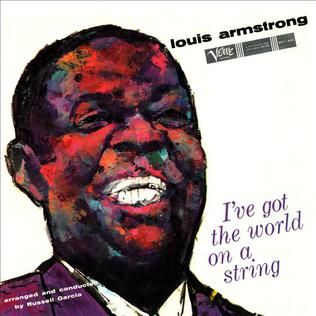
Doris Day was an American actress and singer. She began her career as a big band singer in 1939, achieving commercial success in 1945 with two No. 1 recordings, "Sentimental Journey" and "My Dreams Are Getting Better All the Time" with Les Brown and His Band of Renown. She left Brown to embark on a solo career and recorded more than 650 songs from 1947 to 1967.

"Secret Love" is a song composed by Sammy Fain (music) and Paul Francis Webster (lyrics) for Calamity Jane, a 1953 musical film in which it was introduced by Doris Day in the title role. Ranked as a number 1 hit for Day on both the Billboard and Cash Box, the song also afforded Day a number 1 hit in the UK. "Secret Love" has subsequently been recorded by a wide range of artists, becoming a C&W hit firstly for Slim Whitman and later for Freddy Fender, with the song also becoming an R&B hit for Billy Stewart, whose version also reached the top 40 as did Freddy Fender's. In the UK, "Secret Love" would become the career record of Kathy Kirby via her 1963 remake of the song. The melody bears a slight resemblance to the opening theme of Schubert's A-major piano sonata, D.664.

"Are You Lonesome Tonight?" is a song written by Roy Turk and Lou Handman in 1926. It was recorded several times in 1927—first by Charles Hart, with successful versions by Vaughn De Leath, Henry Burr, and the duet of Jerry Macy and John Ryan. In 1950, the Blue Barron Orchestra version reached the top twenty on the Billboard's Pop Singles chart.

"Another Girl, Another Planet" is a song by the English rock band the Only Ones. It is the second track on their debut studio album, the Only Ones, released in 1978. The song is the band's most successful and has since been covered by several other performers.
Edward Bear was a Toronto-based Canadian pop-rock group. The band is best known for its chart-topping singles, "You, Me and Mexico", "Last Song", and "Close Your Eyes", used as the signing-off song for Delilah's radio show.

"The Flame" is a power ballad released in 1988 by the American rock band Cheap Trick and the first single from their tenth album Lap of Luxury. It was written by songwriters Bob Mitchell and Nick Graham.
The following is a complete discography for American singer and actress Doris Day, whose entertainment career spanned nearly 50 years. She started her career as a big band singer in 1939 and gained popularity with her first hit recording, "Sentimental Journey", with Les Brown and His Band of Renown in 1945. In her solo career, she recorded more than 650 recordings on the Columbia Records label from 1947 to 1967. She was one of the most popular and acclaimed singers of the 20th century.
"Mean to Me" is a popular song with music by Fred E. Ahlert and lyrics by Roy Turk, published in 1929. Hit versions that year were by Ruth Etting and by Helen Morgan. Ben Bernie and the Hotel Roosevelt Orchestra also recorded what might be the first male version in February 1929 with vocals by Scrappy Albert.

American actress Doris Day appeared in 39 feature films released between 1948 and 1968. Day began her career as a band singer and eventually won the female lead in the Warner Bros. film Romance on the High Seas (1948), for which she was selected by Michael Curtiz to replace Betty Hutton. She starred in several minor musicals for Warner Bros., including Tea for Two (1950), Lullaby of Broadway (1951), April in Paris (1952), By the Light of the Silvery Moon (1953) and the hit musical Calamity Jane, in which she performed the Academy Award-winning song "Secret Love" (1953). She ended her contract with Warner Bros. after filming Young at Heart (1954) with Frank Sinatra.

Paul Jabara & Friends is the fourth studio album by American actor, singer and songwriter Paul Jabara, best known for writing Donna Summer's hit "Last Dance" and the Summer/Barbra Streisand duet "No More Tears ". The album includes the multimillion-selling single release "It's Raining Men" by The Weather Girls, written and produced by Jabara in late 1982.

Lazy Afternoon is the seventeenth studio album recorded by American singer Barbra Streisand. It was released on October 14, 1975, by Columbia Records. Following a mixed critical response to her previous studio album, ButterFly (1974), the singer began working with new musicians for the project. Recorded in April 1975 in Los Angeles, Lazy Afternoon contains pop standards. Producer Rupert Holmes wrote three songs on the album and co-wrote a fourth, "By the Way", with Streisand. She also included a few cover songs, such as Four Tops' "Shake Me, Wake Me ", Stevie Wonder's "You and I", and Libby Holman's "Moanin' Low".
The World Vacation Tour was the second concert tour by American hard rock band Van Halen in support of their second studio album Van Halen II.

Christmas Memories is the second Christmas album and twenty-ninth studio release by American singer Barbra Streisand. It was released on October 30, 2001, by Columbia. Streisand recorded the album during July, August, and September 2001 in various recording studios throughout California and in North Vancouver. It was executive-produced by Streisand and Jay Landers, while William Ross and David Foster served as additional producers. The album contains several cover versions of various holiday songs. To promote Christmas Memories, Columbia Records released an advance sampler version of the album titled A Voice for All Seasons.

Alan Bergman and Marilyn Keith Bergman were an American songwriting duo. Married from 1958 until Marilyn's death, together they wrote music and lyrics for numerous celebrated television, film, and stage productions. The Bergmans enjoyed a successful career, honored with four Emmys, three Oscars, and two Grammys. They are in the Songwriters Hall of Fame.

I've Got the World on a String is a 1960 album by Louis Armstrong, arranged by Russell Garcia.

"I Won't Be the One to Let Go" is a song recorded by American singers Barbra Streisand and Barry Manilow for the former's sixth compilation album, Duets (2002). It was released as the album's only single on November 4, 2002, by Columbia Records. The track was written and produced by Richard Marx with additional songwriting coming from Manilow and additional production handled by Walter Afanasieff. Initially an airplay and streaming-only single in the United States, a promotional CD single of "I Won't Be the One to Let Go" was released and includes the radio edit and album version of the song.

Dream with Me is an album by the American singer Tommy Sands. It was arranged by Nelson Riddle and released in 1960.
"Aren’t You Glad You’re You?" is a 1945 popular standard composed by Jimmy Van Heusen, with lyrics by Johnny Burke. Van Heusen and Burke wrote the song for the film The Bells of St. Mary's, directed by Leo McCarey, and starring Bing Crosby and Ingrid Bergman in the main roles. Bing Crosby presents the song in the film.

Keely Smith Sings the John Lennon—Paul McCartney Songbook is an album by the American singer Keely Smith of music written by the songwriting partnership of John Lennon and Paul McCartney. The album was successful in the United Kingdom.

"Makin' Love" is a song written and originally released by American country singer Floyd Robinson. He released it as a single in 1959 and was featured on his self-titled debut album the following year.















